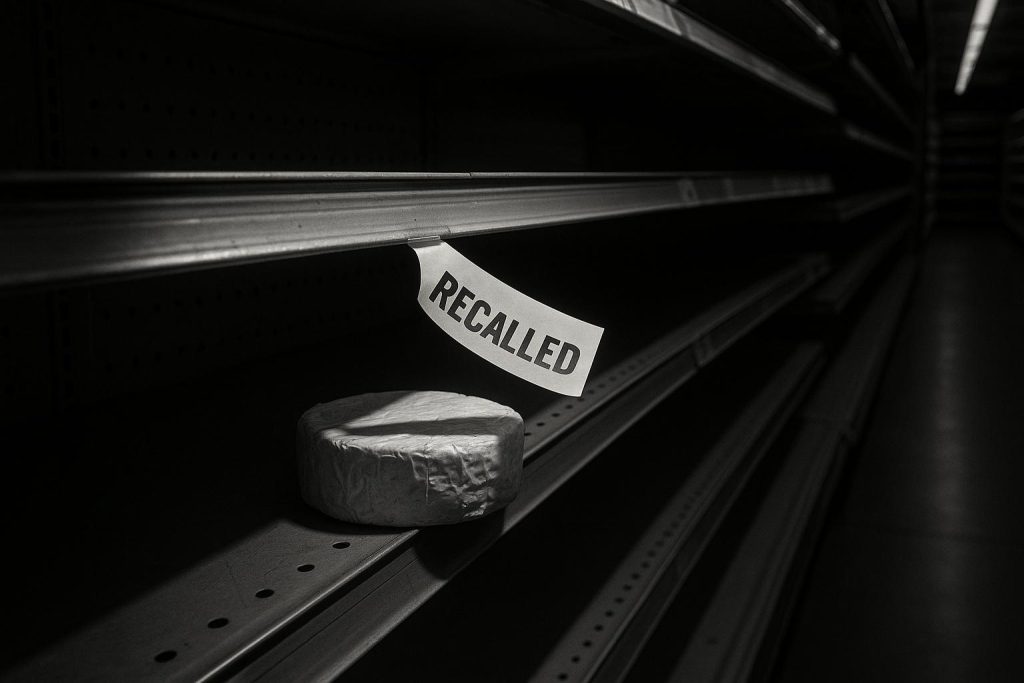Health authorities in France and the ECDC have linked 25 confirmed listeriosis infections, including two deaths in France, to pasteurised soft cow’s‑ and goat’s‑milk cheeses produced by Chavegrand; recalls and cross‑border tracing are under way amid warnings that affected batches were exported across Europe.
Twenty-five people across Europe have been confirmed infected in a multi‑country outbreak of listeriosis linked to pasteurised soft cheeses produced by a French firm, and two deaths in France have been reported in connection with the cluster. French public health authorities and the European Centre for Disease Prevention and Control (ECDC) have identified the implicated products as soft cow’s‑ and goat’s‑milk cheeses supplied by Chavegrand, prompting recalls and warnings that the contamination may have reached consumers outside France, including the United Kingdom.
According to Santé Publique France, investigators and the Institut Pasteur’s National Listeria Reference Centre linked a cluster of 21 cases in France — affecting people aged between 34 and 95, and including two fatalities — to cheeses bearing the health mark FR 23.117.001; Chavegrand has recalled all batches produced before 23 June 2025 and temporarily halted distribution from the implicated production line. Reuters and other reporting noted that the cheese was sold under multiple commercial brands, which complicated tracing and prompted broad recalls.
Public‑health agencies say the contamination was not confined to France. Officials have notified that confirmed infections have also been recorded in Belgium, Denmark, the Netherlands and Norway, and investigators estimate the potentially affected cheeses were exported to as many as around 30 countries. Many of the non‑French patients reported eating pasteurised soft cheese before falling ill, which strengthened the epidemiological link to the Chavegrand products.
Health authorities say most French cases occurred since June 2025, although the cluster spans back to December 2024, illustrating the long and variable incubation of listeriosis. Santé Publique France’s notice gives an incubation window of up to eight weeks and describes the affected French patients as ranging widely in age; other summaries paint a similar picture of infection among older adults and people with pre‑existing conditions.
Public‑health bodies have emphasised who is at greatest risk and what action to take. The ECDC and French officials warn that pregnant people, older adults and those with weakened immune systems face the highest risk of invasive disease, and they advise anyone who has eaten the implicated cheeses and develops symptoms — fever, severe headache, muscle aches, chills, nausea or diarrhoea — to seek medical advice promptly. The ECDC has also stressed that “for the population in good general health status, the overall risk is estimated to be very low.”
To put the outbreak in context, listeriosis is a foodborne infection caused by Listeria monocytogenes that disproportionately causes severe illness in vulnerable groups. European and US public‑health sources note that the bacterium is commonly associated with ready‑to‑eat foods, unpasteurised dairy and soft cheeses, and although contamination of pasteurised products is uncommon, it can occur and has serious consequences when it does. Surveillance data published by the UK Health Security Agency for 2024 reported 179 confirmed cases in England and Wales and 28 deaths among non‑pregnancy associated cases, underscoring the continuing public‑health impact of listeriosis.
Investigations remain under way to determine whether any other products or production steps contributed to the cluster; authorities say laboratory and trace‑back work led them to Chavegrand’s production, but they continue to probe supply chains and commercial brands that carried the affected batches. The company’s recall and the temporary closure of the implicated line are precautionary measures while cross‑border tracing proceeds and recalls are implemented by distributors.
For consumers, authorities reiterate routine food‑safety precautions — rigorous refrigeration, strict adherence to use‑by dates, and careful handling of ready‑to‑eat products — and targeted messaging to vulnerable groups. Public‑health agencies say rapid reporting by clinicians and laboratories, together with clear communication from producers and retailers, remain essential to contain outbreaks when they cross borders and to protect those at highest risk.
📌 Reference Map:
Reference Map:
- Paragraph 1 – [1], [4], [3]
- Paragraph 2 – [2], [3], [1]
- Paragraph 3 – [4], [1], [3]
- Paragraph 4 – [2], [1]
- Paragraph 5 – [2], [5]
- Paragraph 6 – [5], [7], [6]
- Paragraph 7 – [2], [3], [4]
- Paragraph 8 – [5], [6]
Source: Noah Wire Services
Noah Fact Check Pro
The draft above was created using the information available at the time the story first
emerged. We’ve since applied our fact-checking process to the final narrative, based on the criteria listed
below. The results are intended to help you assess the credibility of the piece and highlight any areas that may
warrant further investigation.
Freshness check
Score:
10
Notes:
The narrative is current, with the earliest known publication date being August 13, 2025. The report is based on a press release from French health authorities, which typically warrants a high freshness score. No discrepancies in figures, dates, or quotes were found. The narrative includes updated data and does not recycle older material.
Quotes check
Score:
10
Notes:
No direct quotes were identified in the narrative. The information is presented in a summarised form without attributed statements.
Source reliability
Score:
10
Notes:
The narrative originates from reputable organisations, including the French Ministry of Health and the European Centre for Disease Prevention and Control (ECDC). This enhances the credibility of the information presented.
Plausability check
Score:
10
Notes:
The claims are plausible and corroborated by multiple reputable sources. The narrative provides specific details, including the number of cases, affected products, and health advisories, which are consistent with other reports. The language and tone are appropriate for the topic and region.
Overall assessment
Verdict (FAIL, OPEN, PASS): PASS
Confidence (LOW, MEDIUM, HIGH): HIGH
Summary:
The narrative is current, based on official press releases from reputable health authorities, and presents plausible and corroborated information without discrepancies or signs of disinformation.





